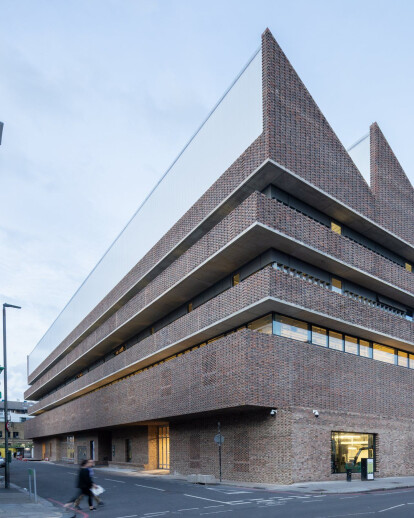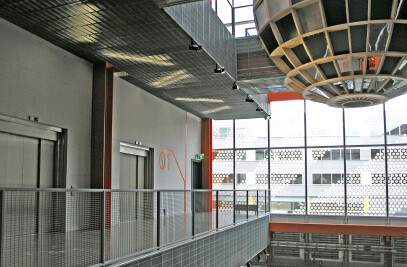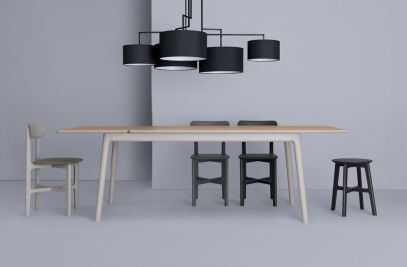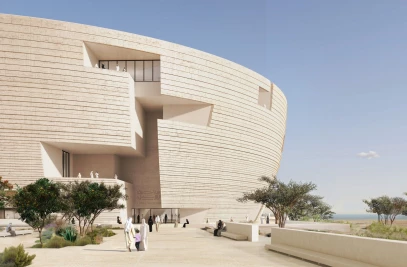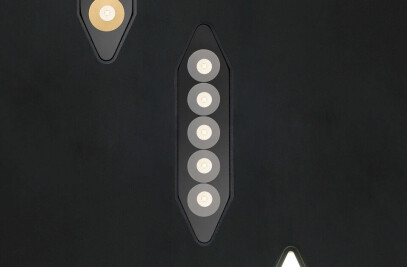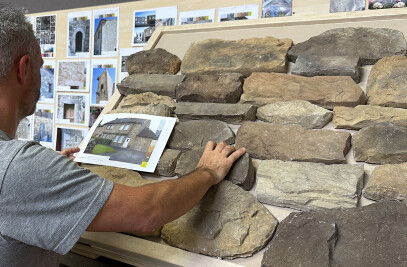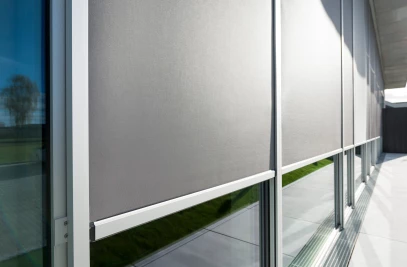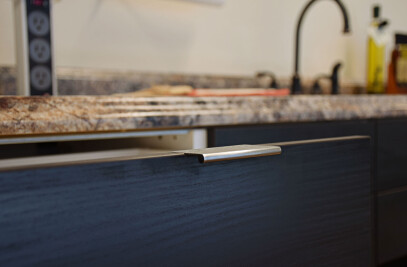Royal College of Art unveils new London campus designed by Herzog & de Meuron and announces ambitious five-year strategy
Sir Jony Ive, Chancellor, Royal College of Art:
“The Royal College of Art is a unique institution, rightly revered globally for the excellence of its postgraduate art and design education. The dynamic created by this new building is remarkable. Our working environments have a powerful influence on the way we create and collaborate, and I am so excited for this new chapter in the life of the college and the inspirational work its graduates will bring into the world.”
The Royal College of Art, the world’s leading university of art and design, unveiled its new campus in Battersea, London on 23 May 2022, the most significant campus development in its history.
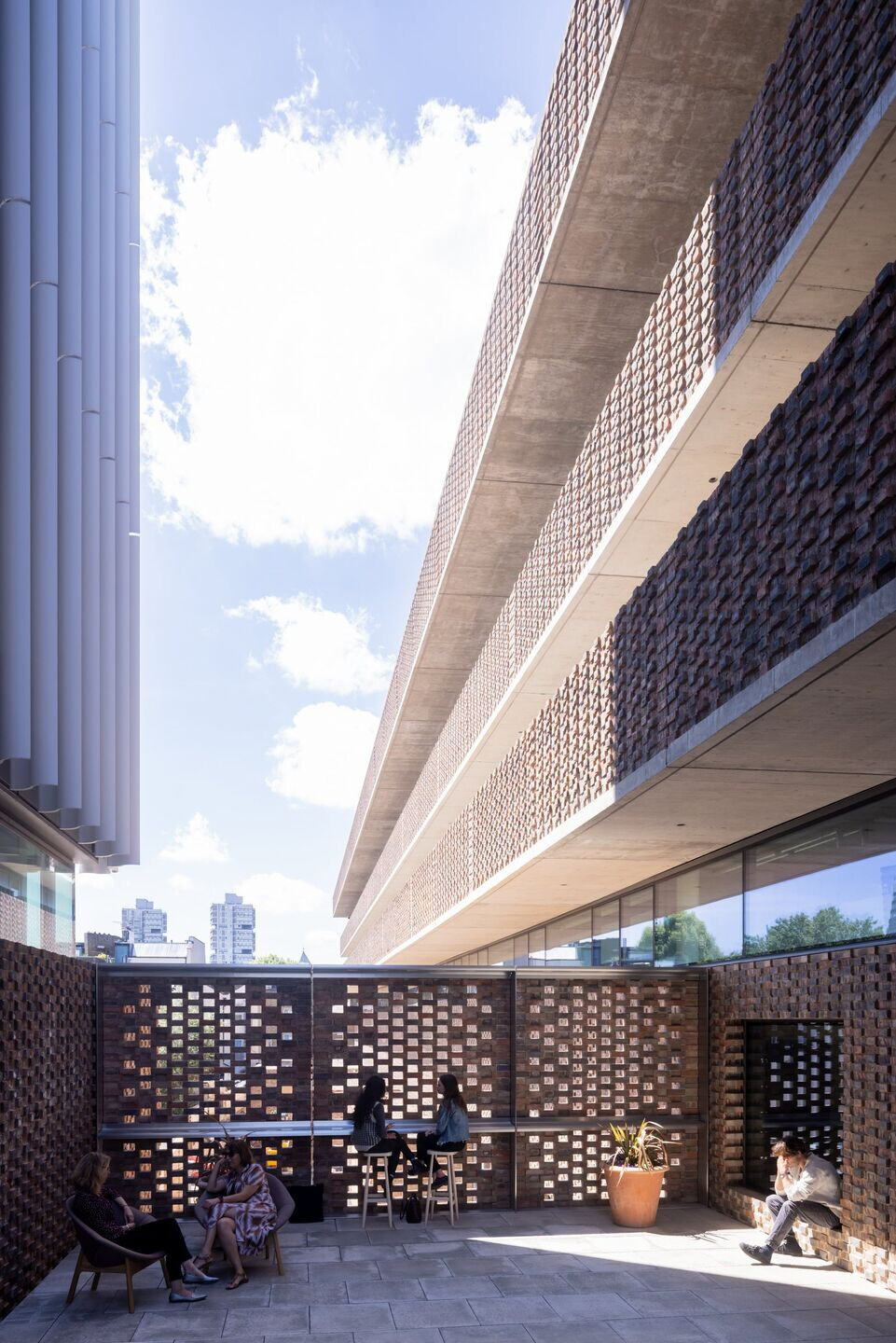
The £135 million campus is designed by internationally acclaimed architects, Herzog & de Meuron.
The expansion marks a critical point in the RCA’s transformation into a dynamic, STEAM-focused postgraduate university (Science, Technology, Engineering, Art and Mathematics) expanding into computer and materials science, robotics, advanced manufacturing, complex visualisation and data science, and intelligent mobility, enabling its students to tackle some of the most pressing challenges of our times.
Following an unprecedented grant of £54 million from Her Majesty’s Treasury announced in the Chancellor’s Spring budget in 2016, match funding has been led by a £15 million gift from the Sigrid Rausing Trust, along with support from other national and international philanthropists and industry partners.
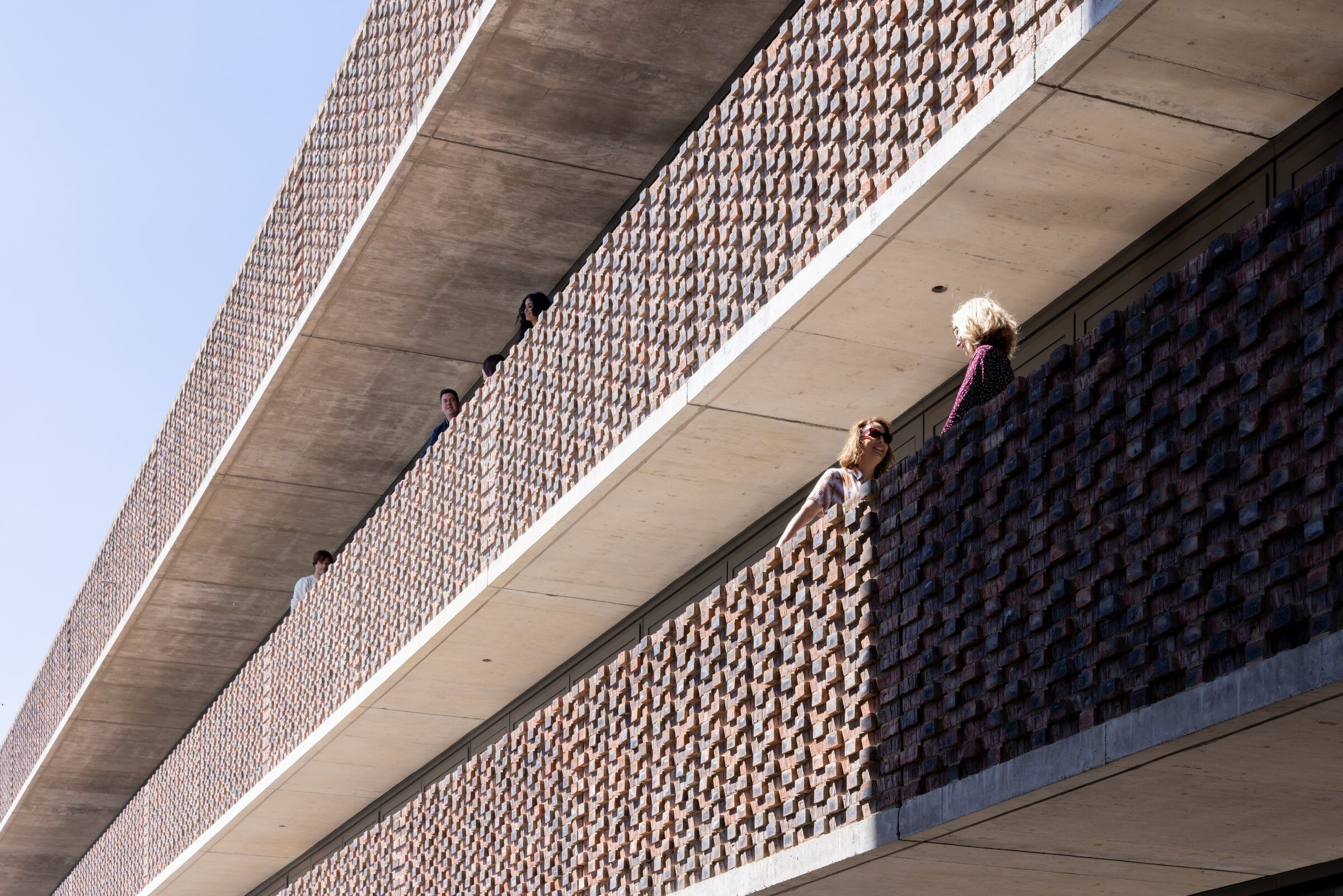
The new campus will transform the RCA with the following facilities:
- Four storeys of studios and workshops – for Sculpture (housed in the Linbury Sculpture Studio) and Contemporary Art Practice (housed in the Spiegel Design Studio), Moving Image (video and film), and the School of Design. Designed as social and educational spaces of creative transfer and collaboration, the studios will also accommodate temporary exhibitions and large-scale works.
- The Hangar – a double height, 350 sqm multifunctional activity space at the heart of the campus, with vast doors at each end to enable the installation of heavy, large, or complex works of art.
- Robotics Hangar– a smaller hangar and gallery space providing research testing and assembly areas for intelligent mobility, design engineering, sculpture and robotics, with aerial and aquatic robotics.
- Rausing Research & Innovation Building – eight floors of dedicated independent and confidential research space for areas such as materials science, soft robotics, advanced manufacturing, intelligent mobility, and AR and VR visualisation, housed in the Snap Visualisation Lab.
- The Helen Hamlyn Centre for Design – a new purpose-built home for the Helen Hamlyn Centre for Design, which undertakes design research and projects with industry that contribute to improving people’s lives. The Design Age Institute now adjoins the Centre.
- Innovation RCA – housed in the Clore Innovation Centre – is the RCA’s centre for enterprise, entrepreneurship, incubation and business support.
- Seminar & Conference Facility – the top floor of the Rausing Research & Innovation Building housing a new seminar and conference facility for use by the College and external partners.
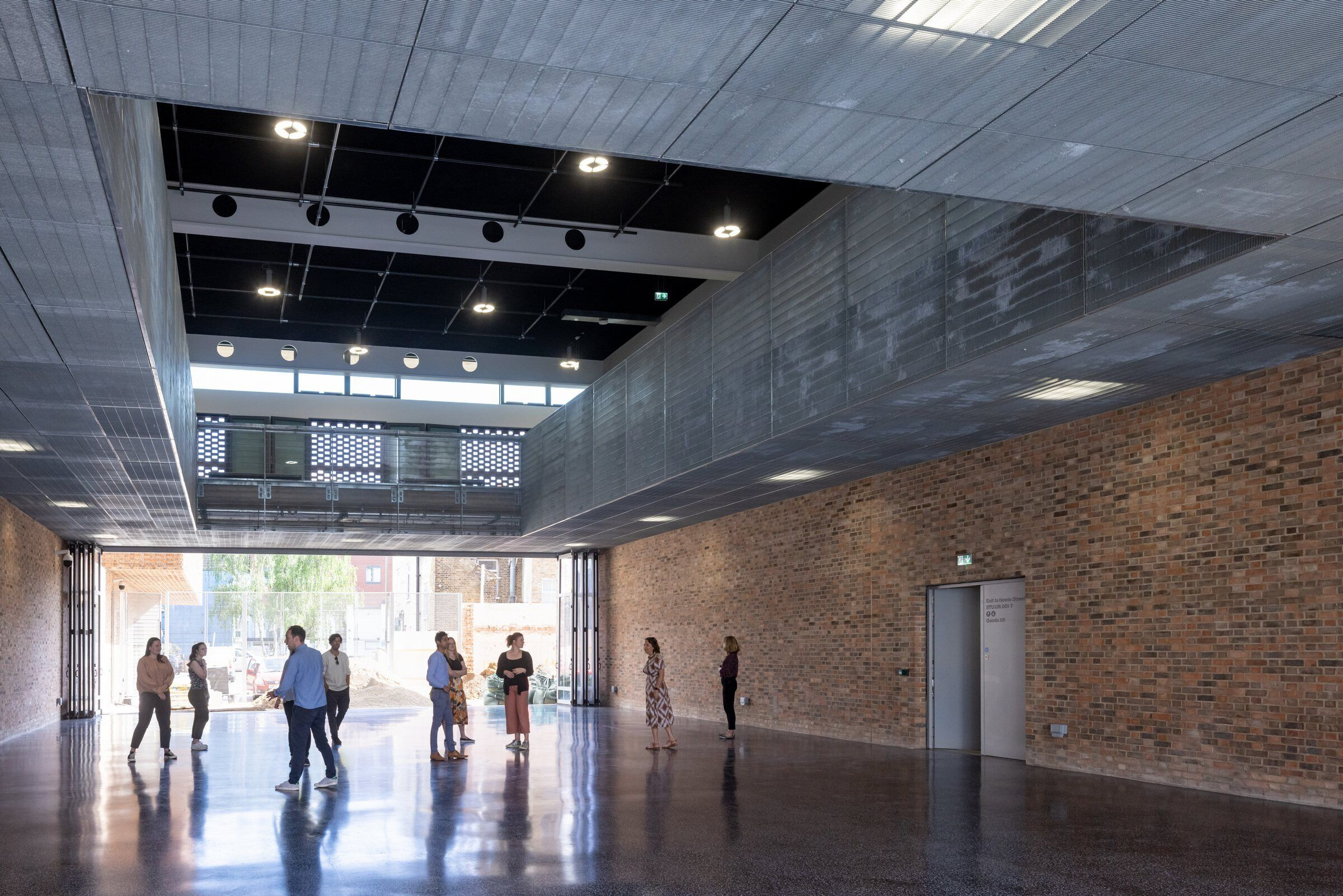
The new development will ensure that the RCA continues to reach out towards its local community. Public walkways intersect the site, referencing the original Victorian street grid of this quarter of London. The RCA’s close neighbours include the headquarters of fashion designer Vivienne Westwood and architects Foster & Partners.
The interior fit-out of the new campus celebrates the iconic designs of RCA alumni and staff, bringing together furniture and fittings selected for their approach to sustainable manufacturing and energy efficiency, concepts which are central to the new development. The building has been certified as BREEAM excellent following a £3 million investment, using a combination of integrated design and most significantly a commitment to low and zero carbon technologies.
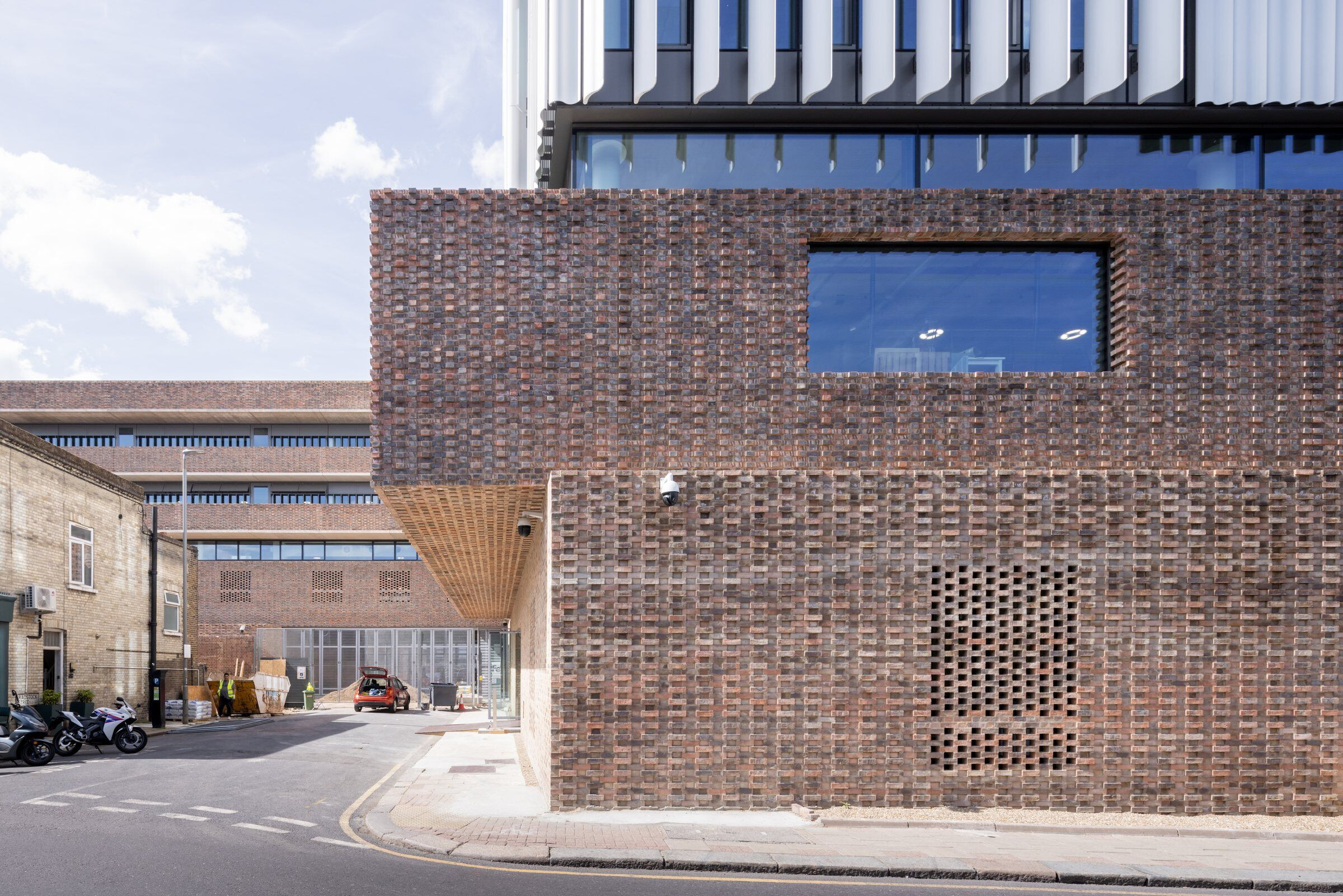
To coincide with the launch, the RCA has announced a new 5-year strategy for 2022-2027 which sets out its ambition to use interdisciplinary thinking to solve global issues, whilst continuing to attract the world’s most talented faculty, students, artists, designers and supporters. Key initiatives include:
- Providing new insights and leadership into four twenty-first century challenges: mobility and urbanism; climate crisis and the circular economy; ageing populations and inclusivity; Design & AI
- A new MA structure, new flexible learning models, and new qualifications, including MA units in Design Robotics and Gaming
- Doubling the percentage of Black British and People of Colour students and researchers from underrepresented backgrounds with increased scholarship and student support funds
- Deliver a pipeline of new start-ups into the UK economy, supporting an additional 20 start-ups per year through InnovationRCA, backed by a new £3m Design and Impact fund.
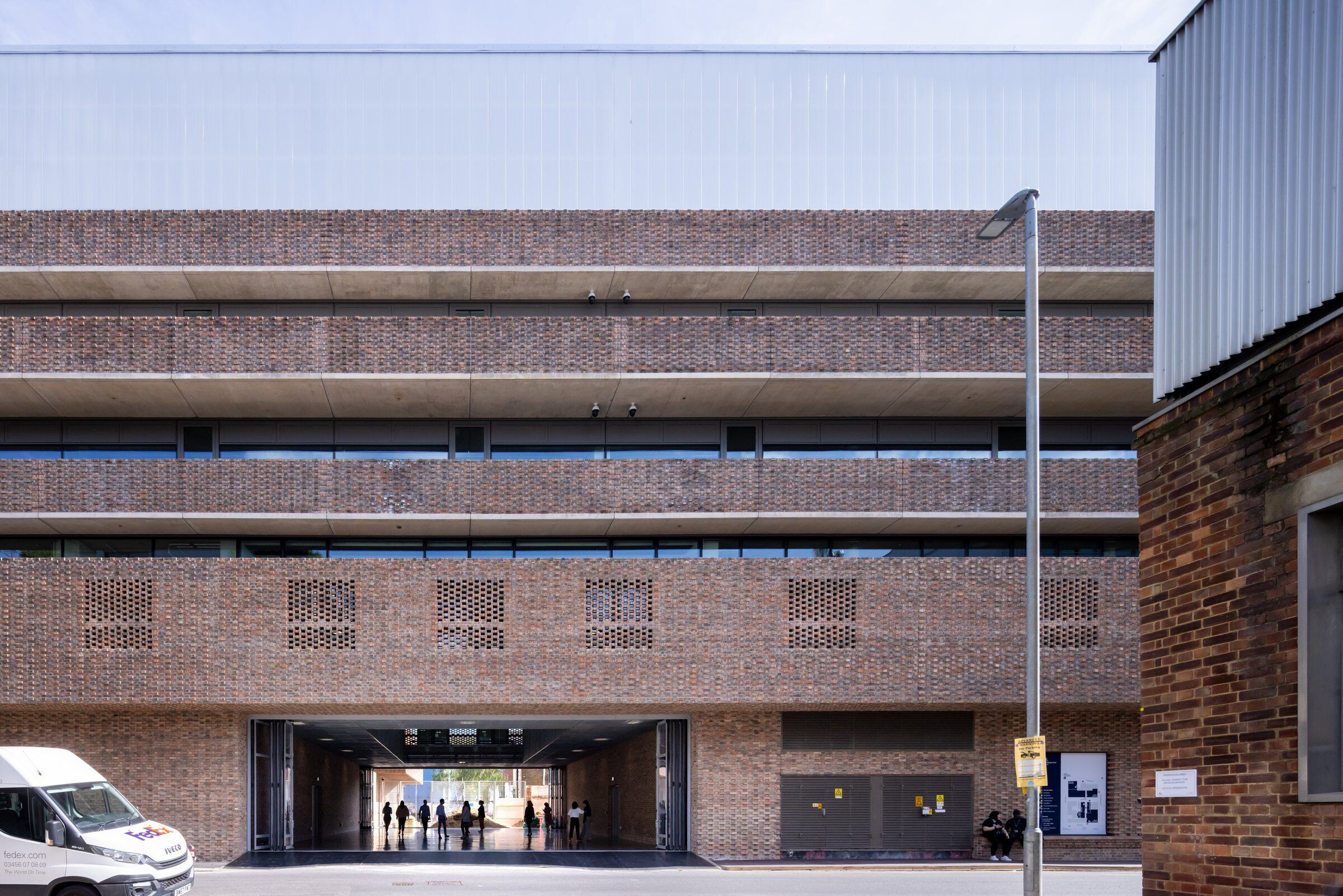
Dr. Paul Thompson, Vice-Chancellor, Royal College of Art, said: “This wonderful new building embodies all that is best and most vital about the RCA – open, collaborative, interdisciplinary and bold. We are exceptionally grateful to the support to HM Treasury for helping the RCA to realise its ambition of bringing creativity, tech, fine art and innovation all together under one roof and these new facilities will ensure the next generation of world-leading designers, artists and creative entrepreneurs have all of the best possible chance to envision a better future for People and Planet.”
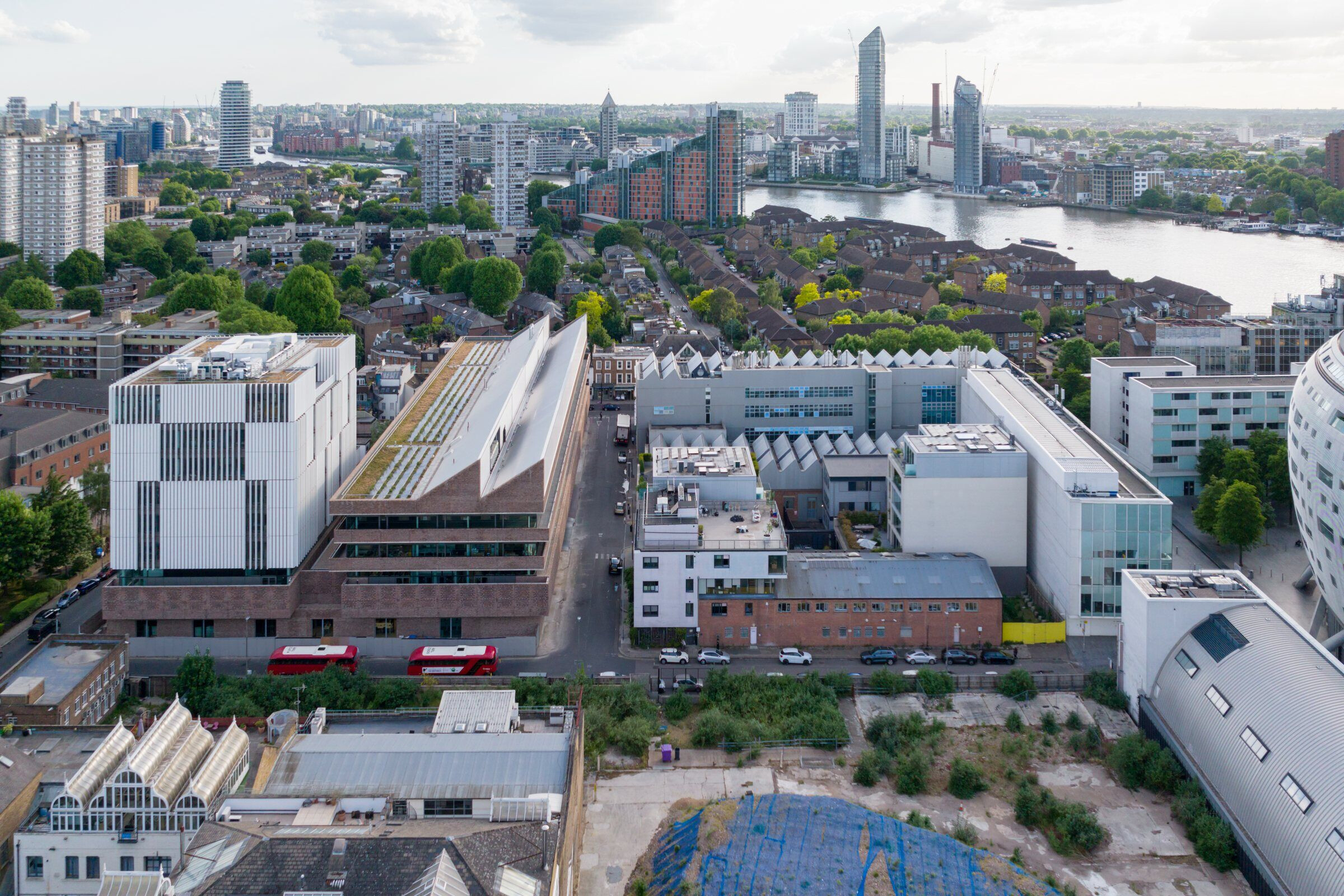
Herzog & de Meuron, said: “The RCA campus in Battersea is conceived as a porous and flexible ‘territory’ of platforms upon which the varied needs of the RCA curriculum are given space to change and grow, enabling the transformation of space as needed during this process. The studio and research buildings are designed as communities unto themselves – a place that encourages interactions between students, faculty and staff. Our intention is also to create a civic connector, encouraging circulation through the site and inviting exchange between members of the RCA community, the neighbourhood and wider city.”
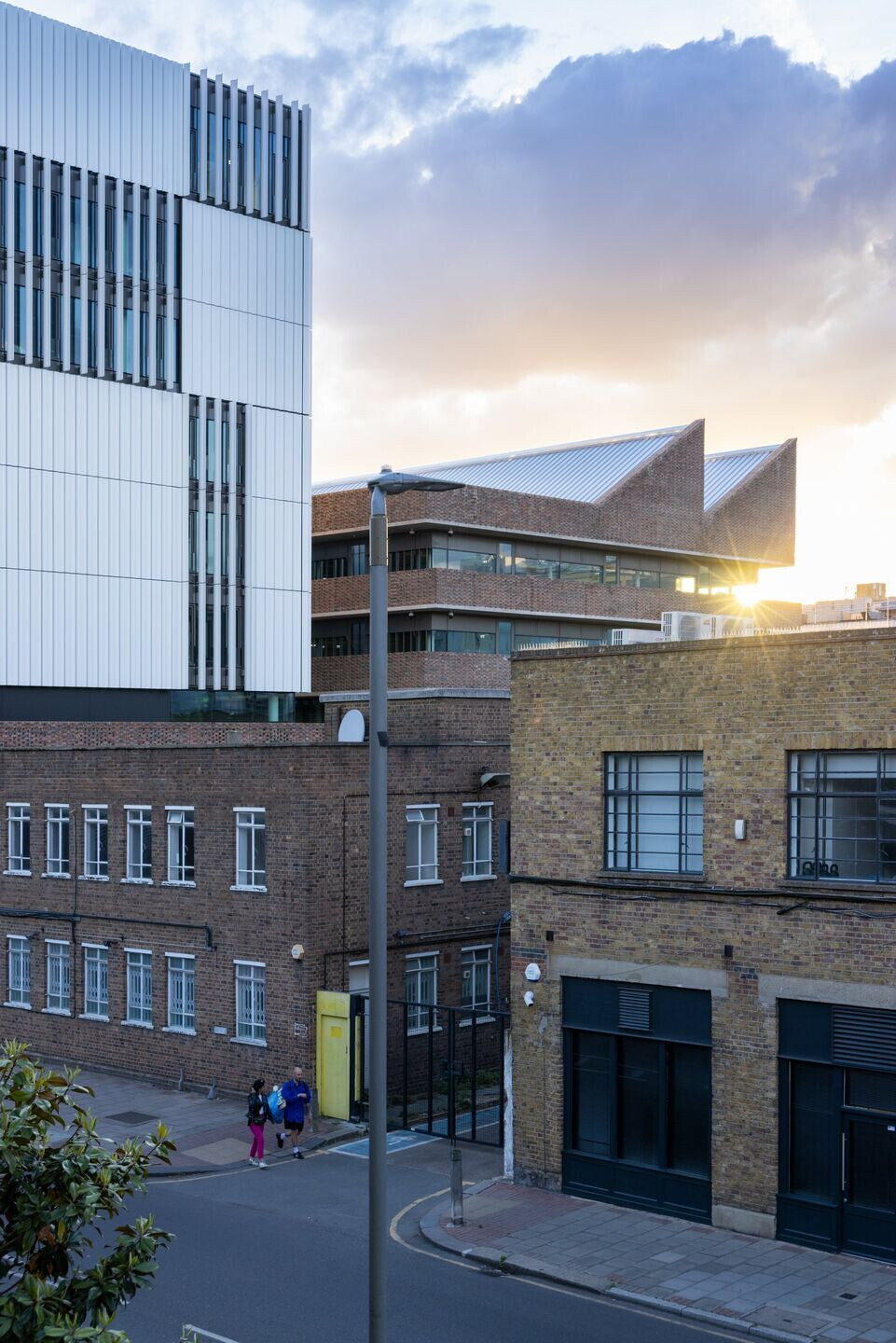
Sir Peter Bazalgette, Chair and Pro Chancellor of the RCA, added: “I was delighted to take over the Chairmanship of the RCA’s governing body in 2022 at this incredible moment in the College’s 185-year history: its largest ever building project and certainly one that will see us supporting many future generations of artists and designers. I must thank my fellow members of Council for the many hours of advice and support they’ve offered the executive team of the RCA. In particular, I would like to thank my predecessor Baroness Rebuck, for her help and leadership on the Battersea South project, and ensuring that the RCA’s ambitious vision became a reality.”
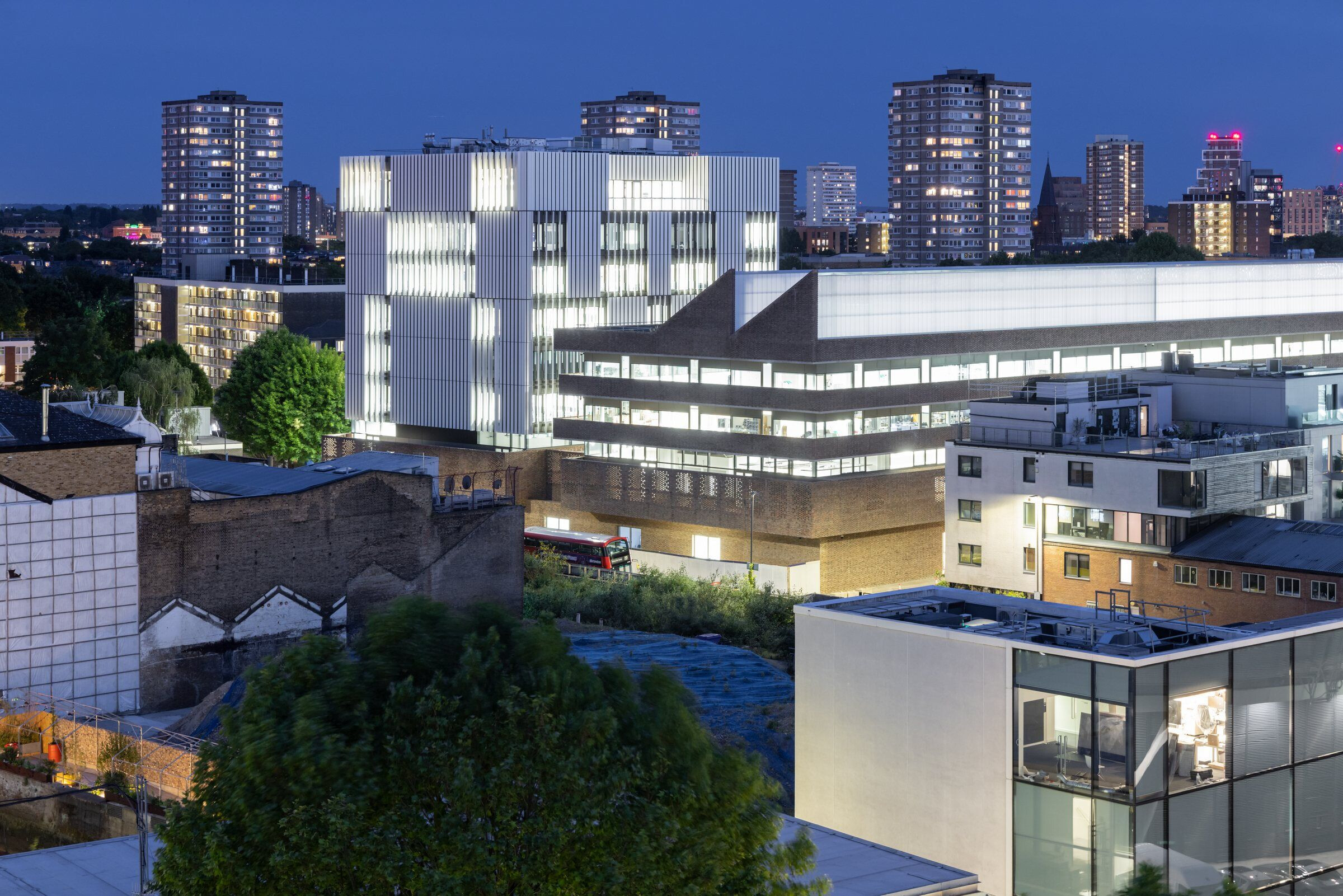
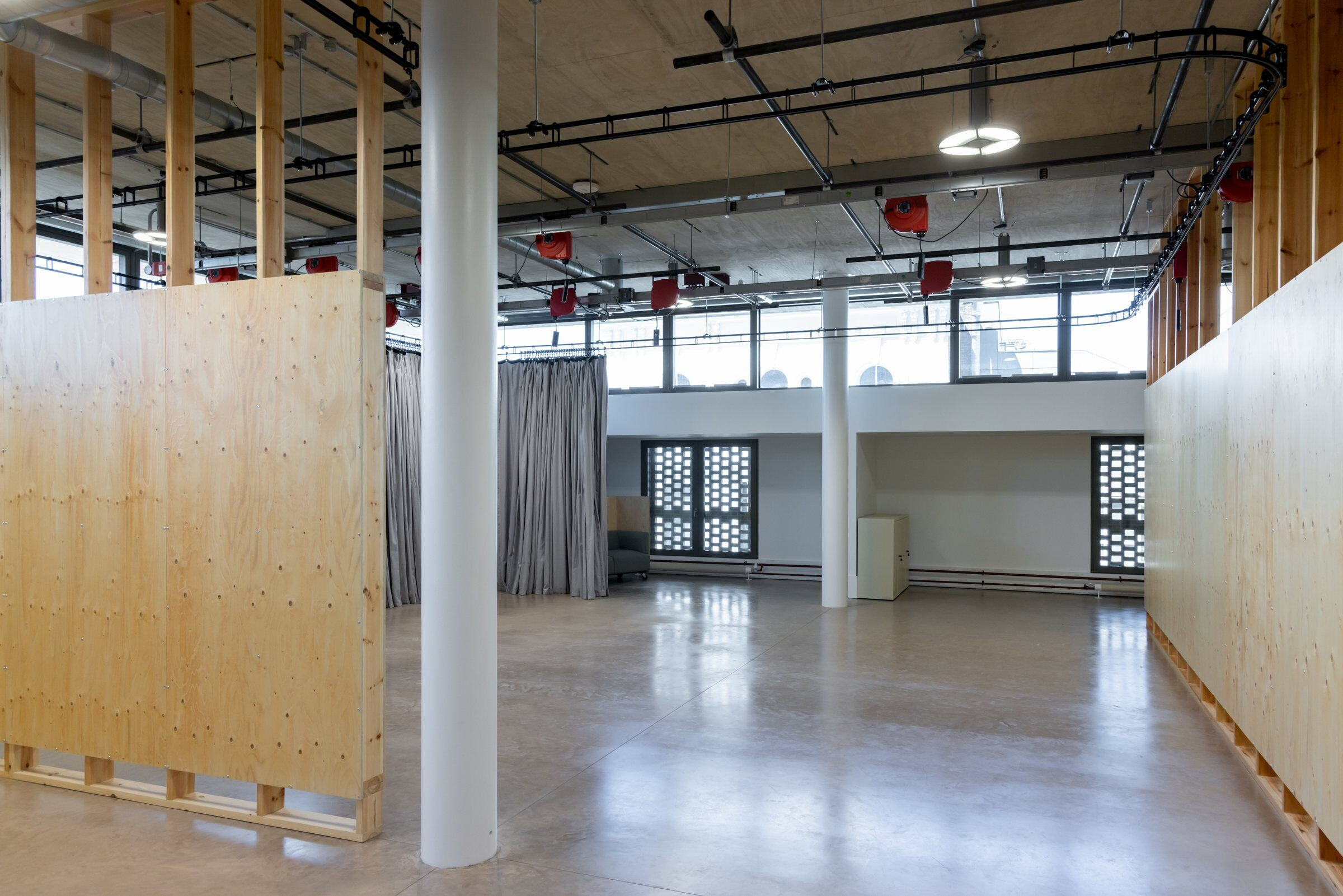
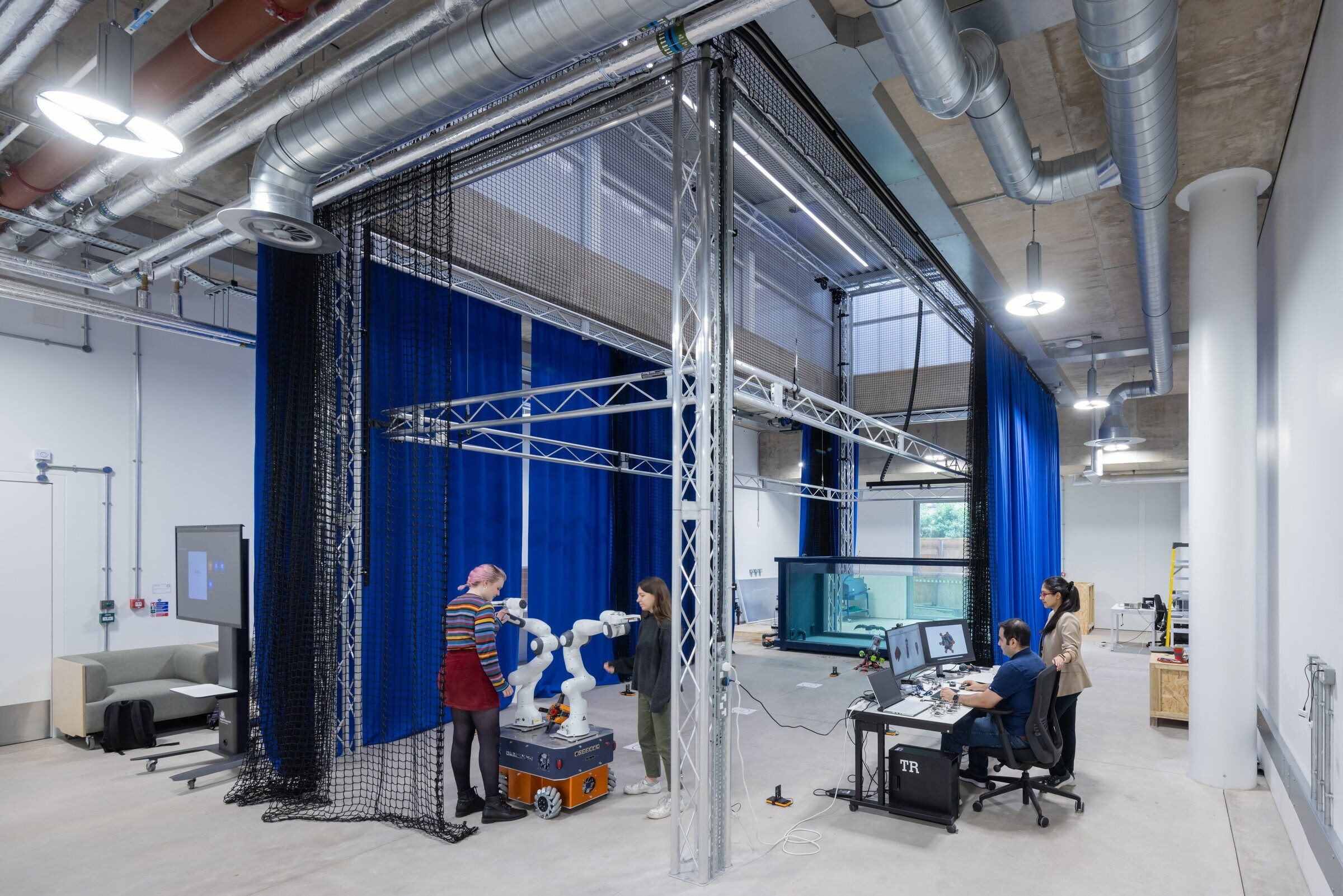
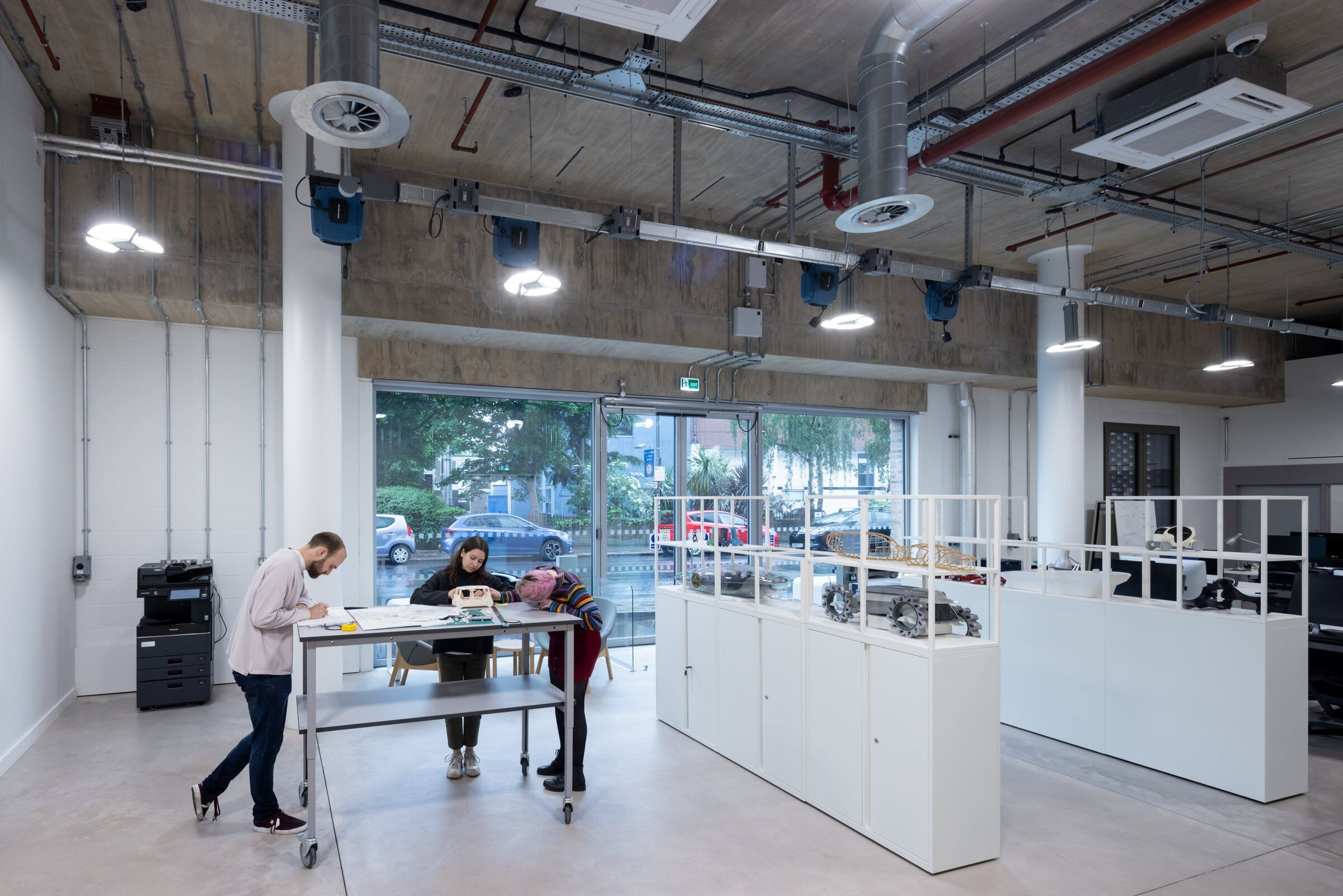
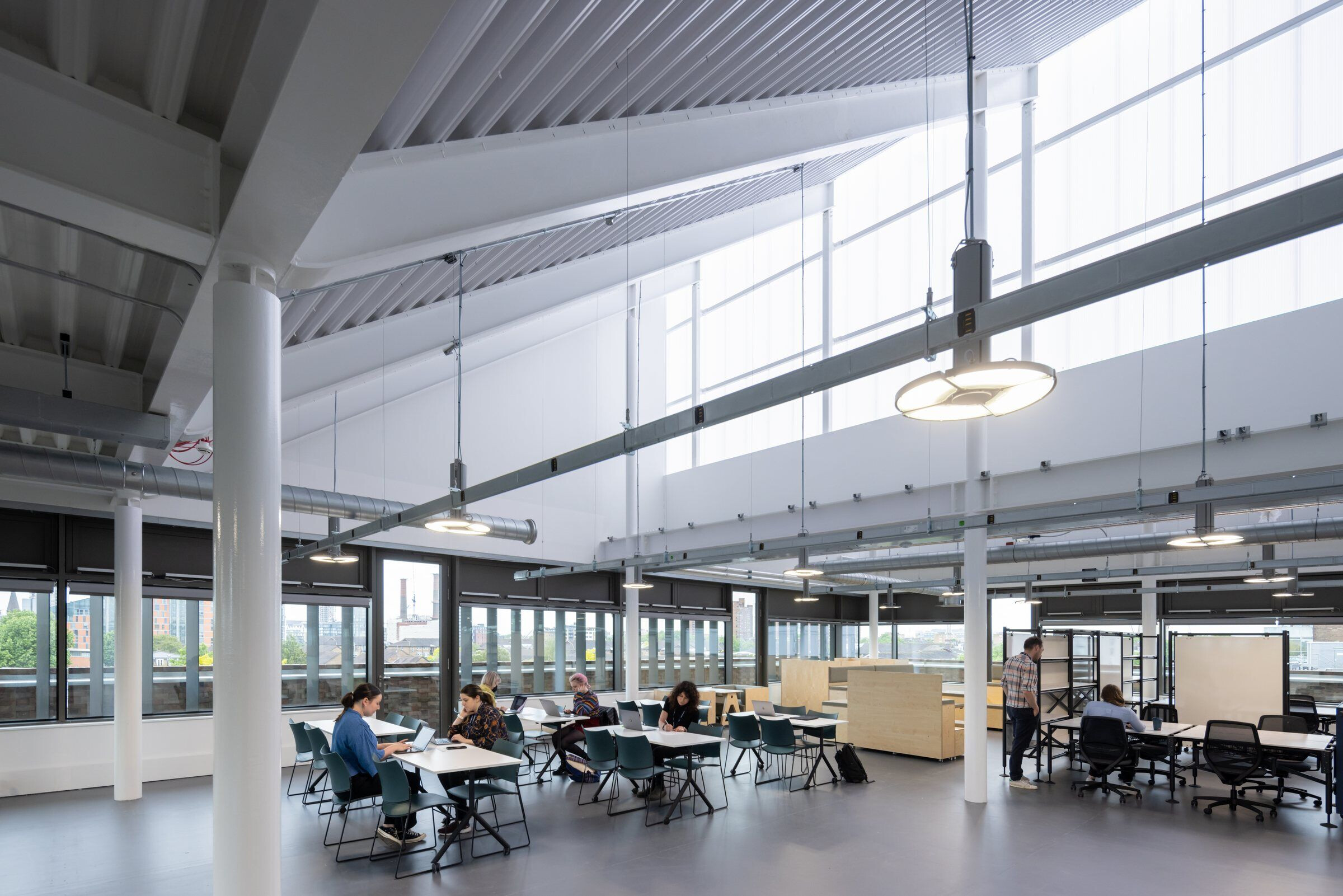
Material Used:
1. Tip Ton chair by Edward Barber & Jay Osgerby for Vitra,
2. Arc Stool by Jemma Ooi & Nathan Philpott for Custhom
3. E8 table by Mathias Hahn for Zeitraum
4. Sam Son Chair for Magis (2015), Konstantin Grcic
5. Comma by Vitra
6. With wayfinding led by the acclaimed graphic designer and the RCA’s former senior tutor in Graphics, Margaret Calvert, showcasing the College’s contribution to industrial design over the years.
